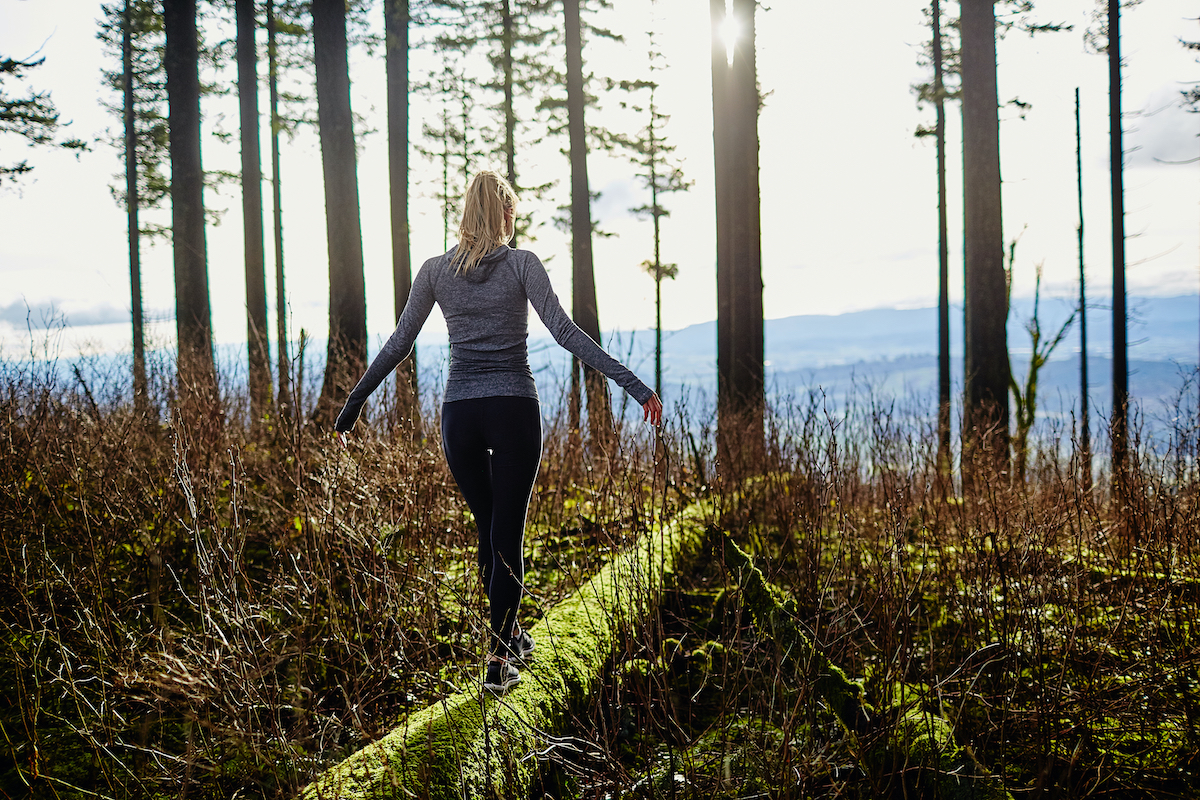The #1 Best Supplement To Take Before a Walk, Says Dietitian

Taking a walk is an excellent form of exercise: it provides fresh air and some beneficial time in nature, and it's a great low-impact way to get your heart rate up and those feel-good endorphins pumping. Not to mention, it's totally free and requires no special equipment whatsoever. But before you lace up your sneakers and head out, consider this: your body will be better primed for that stroll if you're taking the right vitamins and minerals. Specifically, Trista Best, MPH, RD, LD, and a registered dietitian at Balance One Supplements, says the best supplement to take before a walk is a vitamin B complex.
"When it comes to ensuring you have optimal energy levels to keep your walking regimen going long-term, the first thing you should turn to is a B-complex supplement," she says. "This group of water-soluble vitamins is known for their wide range of responsibilities and benefits in the body."
According to Best, the top reason why B vitamins are an excellent choice is that they provide your body with the energy to fuel you through that walk by metabolizing the macronutrients in your food. For example, thiamine (B1) helps to convert carbohydrates into energy. Not only that, but these vitamins also help to transport energy-containing nutrients throughout your body.
Related: The One Vitamin Doctors Are Urging Everyone to Take Right Now
"Extra B12 can help improve anyone's energy levels, but for those with a B12 deficiency it can also lead to a type of anemia known as pernicious anemia," explains Best. "Any form of anemia can create chronic fatigue and supplementing with this vitamin can improve energy levels."
And that's not all—Best notes that vitamin B12, in particular, can have a positive impact on bone density, which is another important factor in walking longevity.
A 2006 review published in the International Journal of Sport Nutrition and Exercise Metabolism revealed that exercise may increase the requirements for vitamin B6. So even if you thought you might be getting enough B vitamins in your diet (from foods like dark leafy greens, seeds, dairy, and eggs), it's a good idea to add a supplement to ensure you're meeting your needs.
By the way—if you're taking walks with the goal of losing weight, it's also worth noting that low levels of B vitamins can negatively impact the functioning of your metabolism, making it tougher to shed those pounds.
Of course, everyone's nutritional needs depend on their sex, age, and activity level, among other factors. That said, vitamin B deficiencies are super common—and clearly, this powerhouse complex can work wonders in not only energizing you for your walk but also ensuring that you reap the most fitness benefits from it.
Get even more healthy tips straight to your inbox by signing up for our newsletter! After, read these next:








